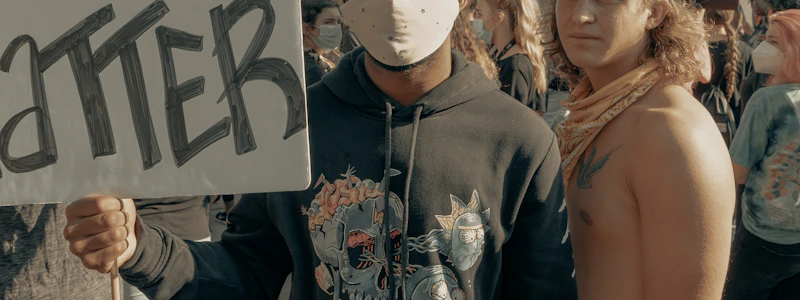Podcast
Questions and Answers
According to August Cieszkowski, Praxis is best described as what?
According to August Cieszkowski, Praxis is best described as what?
- Historical praxis of liberation demanding commitment.
- Activities directed at overcoming societal alienations.
- An activity where man changes his historical world and himself.
- Action oriented towards changing society. (correct)
According to Karl Marx, Praxis is best described as what?
According to Karl Marx, Praxis is best described as what?
- Historical praxis of liberation demanding commitment.
- Activities directed at overcoming societal alienations.
- Action oriented towards changing society.
- An activity where man changes his historical world and himself. (correct)
According to Avery Dulles, Praxis is best described as what?
According to Avery Dulles, Praxis is best described as what?
- An activity where man changes his historical world and himself.
- Action oriented towards changing society.
- Activities directed at overcoming societal alienations. (correct)
- Historical praxis of liberation demanding commitment.
According to Gustavo Gutierrez, Praxis is best described as what?
According to Gustavo Gutierrez, Praxis is best described as what?
In the 'See, Judge, Act' methodology, what does the 'See' stage primarily involve?
In the 'See, Judge, Act' methodology, what does the 'See' stage primarily involve?
In social analysis, taking a neutral stance is:
In social analysis, taking a neutral stance is:
According to Frederick Herzog, where should theology begin?
According to Frederick Herzog, where should theology begin?
What is the primary goal of 'making the unnoticed noticed' in social analysis?
What is the primary goal of 'making the unnoticed noticed' in social analysis?
When judging or discerning a situation, why is it important to focus on the theme of scripture rather than just the story?
When judging or discerning a situation, why is it important to focus on the theme of scripture rather than just the story?
Which of the following best describes the principle of 'Respect for Human Dignity' in Catholic Social Teaching?
Which of the following best describes the principle of 'Respect for Human Dignity' in Catholic Social Teaching?
What does the 'Universal Destination of Goods' principle assert?
What does the 'Universal Destination of Goods' principle assert?
What is the central idea behind the concept of the 'Common Good'?
What is the central idea behind the concept of the 'Common Good'?
How does the principle of 'Solidarity' manifest in addressing social issues?
How does the principle of 'Solidarity' manifest in addressing social issues?
Which statement encapsulates the principle of 'Subsidiarity'?
Which statement encapsulates the principle of 'Subsidiarity'?
What does the 'Option for the Poor' in Catholic Social Teaching primarily emphasize?
What does the 'Option for the Poor' in Catholic Social Teaching primarily emphasize?
Which phrase best describes 'Stewardship and Care for Creation'?
Which phrase best describes 'Stewardship and Care for Creation'?
In the 'Stage of Acting', what is the primary objective?
In the 'Stage of Acting', what is the primary objective?
Which of the following are examples of general directions in 'Stage of Acting'?
Which of the following are examples of general directions in 'Stage of Acting'?
In the bird's eye view, regarding poverty, what initial step is involved in the 'SEE' stage?
In the bird's eye view, regarding poverty, what initial step is involved in the 'SEE' stage?
Following initial identification of poverty, in the bird's eye view, what is the next considerations in the 'JUDGE' stage?
Following initial identification of poverty, in the bird's eye view, what is the next considerations in the 'JUDGE' stage?
Flashcards
Praxis (Cieszkowski)
Praxis (Cieszkowski)
Praxis is action oriented toward changing society.
Praxis (Karl Marx)
Praxis (Karl Marx)
Praxis is activity where man changes his historical world and himself.
Praxis (Avery Dulles)
Praxis (Avery Dulles)
Praxis refers to human activities directed to overcoming the alienations in present-day society.
Praxis (Gustavo Gutierrez)
Praxis (Gustavo Gutierrez)
Signup and view all the flashcards
See
See
Signup and view all the flashcards
Taking Sides
Taking Sides
Signup and view all the flashcards
Starting Point
Starting Point
Signup and view all the flashcards
Perspective
Perspective
Signup and view all the flashcards
Be Critical
Be Critical
Signup and view all the flashcards
Reflection
Reflection
Signup and view all the flashcards
CST Principles
CST Principles
Signup and view all the flashcards
Human Dignity
Human Dignity
Signup and view all the flashcards
Universal Destination
Universal Destination
Signup and view all the flashcards
Common Good
Common Good
Signup and view all the flashcards
Solidarity
Solidarity
Signup and view all the flashcards
Subsidiarity
Subsidiarity
Signup and view all the flashcards
Option for Poor
Option for Poor
Signup and view all the flashcards
Care for Creation
Care for Creation
Signup and view all the flashcards
Commitment to Action
Commitment to Action
Signup and view all the flashcards
Social Analysis
Social Analysis
Signup and view all the flashcards
Study Notes
- LCFAITH: Module 4 discusses the practical/performative dimension of faith.
Praxis and Social Change
- Praxis is described as action-oriented toward changing society.
- Karl Marx defined praxis as an activity where individuals transform their historical world and themselves.
- Avery Dulles described it as activities directed to overcome alienations in society.
- Gustavo Gutierrez characterized faith as a historical praxis of liberation, requiring a commitment to liberation.
See Judge Act
- The "See, Judge, Act" framework is examined in detail.
Stage of Seeing: Social Analysis
- Social analysis requires bias, necessitating taking sides.
- Taking the side of the oppressed is considered right and proper
- Siding against oppressors sounds divisive and threatening.
- Refusing to take sides favors those in power.
- Some argue taking sides can stir up trouble or create enemies.
- A Christian perspective involves loving enemies rather than having none.
- Theology must start “where the pain is” according to Frederick Herzog.
- Taking the perspective of the poor/oppressed reveals a world of conflict.
Critical Awareness
- People should be critical and aware of oppressive structures that are often hard to notice.
- It is vital to address systemic issues preventing people from improving their circumstances, exemplified by removing "NO FISHING" signs to enable fishing.
- Actions should focus on "Making the unnoticed noticed".
Stage of Judging/Discerning: Reflection
- Understanding the situation requires looking through the lens of the Scriptures and Catholic Social Teaching (CST).
- Scriptures should be read for the same theme, not the same story.
- Analyze the bible in the light of poverty to find the solution within it
- This helps to know how Jesus wanted to liberate people living in poverty
- CST principles should be applied to social issues
CST Principles
- Respect for Human Dignity: Every person is made in God's image, deserving of loving respect regardless of background.
- Universal Destination of Goods: Creation is for all people.
- Common Good: The fruits of the earth belong to everyone, with social conditions allowing communal and individual fulfillment.
- Solidarity: Recognizing interconnectedness, challenging Christians to treat all neighbors as themselves.
- Subsidiarity: Empowering decision-making at the most appropriate level within communities.
- Option for the Poor: Prioritizing the needs of the most vulnerable.
- Stewardship and Care for Creation: Protecting people and the planet by using earth's resources responsibly.
Stage of Acting: Commitment to Action
- Proposed actions include:
- Respecting people's process.
- The liberating power of education.
- Empowerment of leaders.
- Mobilization and collective action.
- Networking and collaboration.
- Prayer and celebration.
"See, Judge, Act" Cycle in Action
- SEE step uses social analysis with data and analysis from Economics.
- JUDGE step involves reflection on Bible passages
- The CST principles are applicable in this stage, determining what Bible passages to use.
- ACT focuses on planning action to solve or challenge the evil situation.
Studying That Suits You
Use AI to generate personalized quizzes and flashcards to suit your learning preferences.




